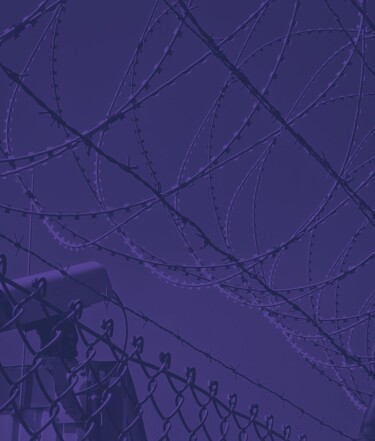
Amicus Curiae Letter U.S. Supreme Court
US authorities want to access data stored in the EU. We intervened with an amicus curiae brief.
In January 2018, the GFF intervened in a case before the U.S. Supreme Court between Microsoft and the United States of America with an amicus curiae brief to advocate for the protection of human rights. In the amicus curiae brief, the GFF called for the US agency FBI to be denied direct access to data that US companies store in the EU. The GFF filed the amicus curiae brief to show how the upcoming decision could have an unacceptable indirect impact on German and European law guarantees. In principle, it therefore supported the arguments put forward in the Microsoft proceedings.
The proceedings concerned the extraterritorial effect of a seizure order ("warrant"). The US government wanted to force Microsoft to hand over data stored in Ireland on the basis of a 1986 law, thereby circumventing a mutual legal assistance agreement between the USA and Ireland. If the Supreme Court had allowed this to happen, the requirements and formalities of international cooperation and European data protection standards would have been circumvented. This is due to the fact that accessing the data would then no longer have had to be measured against European data protection regulations, but would only have had to comply with US law. As a result, citizens' right to informational self-determination would have been undermined.
Collision of companies' duties
However, US companies would also have been forced into an unreasonable conflict of duties if the seizure order had been upheld: On the one hand, they would have continued to be bound to comply with European data protection standards and, on the other hand, they would have had to hand over the data stored by them outside US territory at the request of the US government. To avoid this collision, the companies would have had no choice but to retreat into the national sphere.
Through the instrument of the amicus curiae brief, organisations or individuals can become involved in pending court cases in the US. This is done on their own initiative and therefore, in contrast to the provisions of German law, does not require an invitation to comment. The friend of the court, the amicus, takes a position on the pending proceedings in their brief. They can thus present new perspectives on the aspects essential to the legal dispute as well as raise further legal questions. The aim is to ensure that the interests they represent are adequately taken into account in the decision-making process and reflected in the court's decision. The amicus presents their arguments in a pointed manner and supports them with in-depth information. The court can benefit from the opinion by obtaining perspectives of outsiders on the issues in dispute that are not accessible to it. Through this kind of participation, various lines of argumentation compete with each other. The court can thus include all considerations in the decision-making process and measure them against each other.
Proceedings have come to an end
However, the U.S. Supreme Court no longer had to rule on the matter because Microsoft withdrew its lawsuit. This was due to the fact that in the meantime, the USA had enacted a law that clearly decided the legal issues in dispute in favour of the investigating authorities - much to the detriment of human rights everywhere else.
What is an Amicus Curiae Brief?
An amicus curiae brief is an instrument of US common law to comment on the proceedings as a non-party. Through the external opinion, the amicus, i.e. the friend of the court, can introduce new perspectives on the legal dispute as well as previously ignored or wrongly weighted concerns into the proceedings on their own initiative. They do not acquire any independent procedural rights.
Can the GFF approach the Supreme Court directly?
The GFF may draft a statement to be filed by a US attorney on behalf of the GFF.
Why does the GFF now support corporate causes?
The GFF does not support Microsoft's claims as such, but rather its legal position. Through the amicus curiae brief, the GFF would like to support and strengthen this with further arguments.
How did the Amicus Curiae Brief come into being?
The Amicus Curiae Brief was prepared by the GFF with the support of the international law firm White & Case. They have done this work pro bono, for which the GFF would like to express its sincere thanks.



